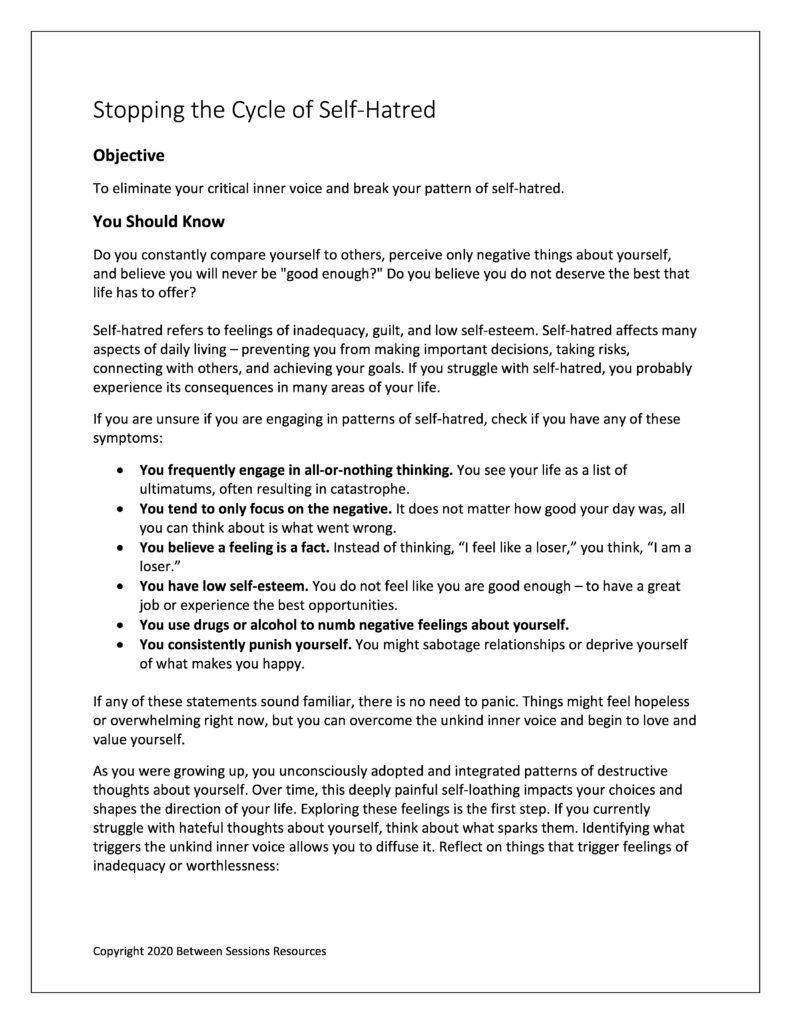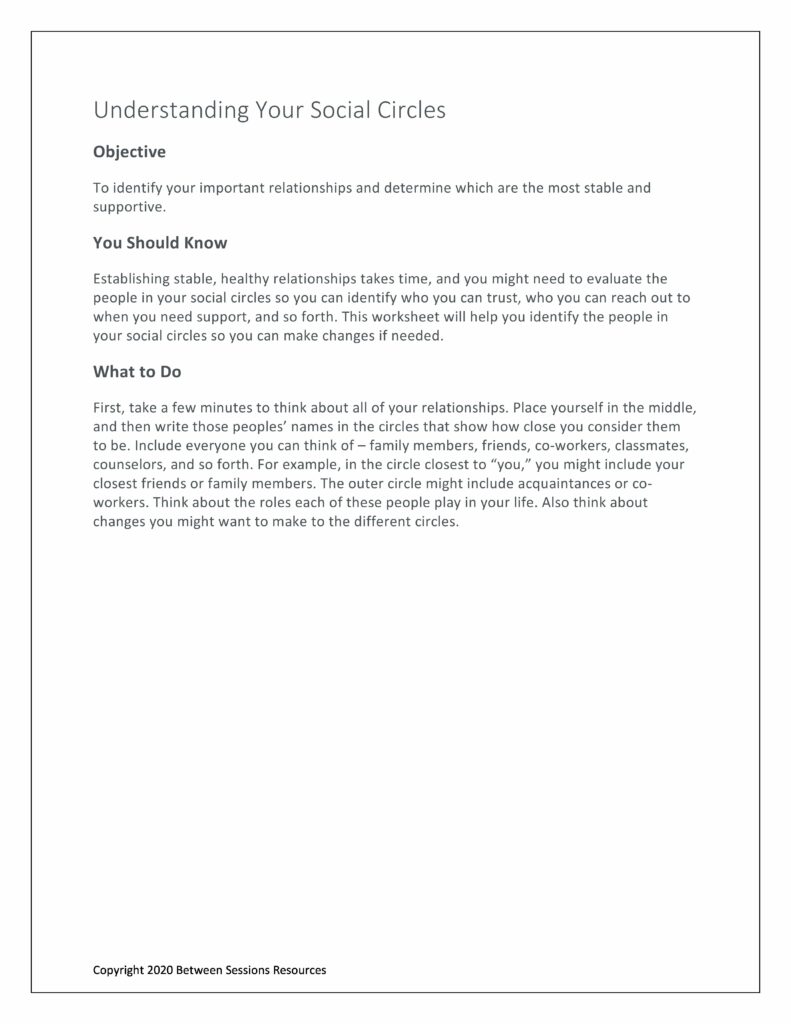Studies tell us that when professionals prescribe therapeutic homework, clients report significantly better outcomes. Our worksheets are derived from evidence-based therapies, and they are designed by experienced professionals. Use the navigation links on the left of this page to view tools in a specific category. Or use the search box at the top of this page to find the exact tool you are looking for.
To modify the tools, click the ‘Send to Client’ button by each tool to open the Psychology Forms Filler. You can then edit the tool as you see fit and either print it out or send it to a client to be filled out online. Click here for a tutorial on using the Psychology Forms Filler.
If you can’t find what you are looking for on this site, please let us know by
clicking here and our team of writers, graphic artists, and therapists will custom-design it for you.
This technique is designed to help people increase their ability to have positive outcomes in conflicts with others. The FAIR technique is an acronym for: be Fair; use no Apologies; Stick to your values, be Truthful. The worksheet asks people to consider how they have handled conflicts in the past and to what extent their have compromised their values so that their self-respect was diminished. It asks them to practice the FAIR technique and record the outcomes and how they felt about themselves. This technique is adapted from DBT therapy. (DBT, interpersonal effectiveness, compromise, conflict, relationships, 1020)
This worksheet is designed to people understand the problems that their partners are bringing to a relationship. Each partner is asked to fill out a worksheet. The worksheet promotes empathy and problem-solving. (marriage and family therapy, relationships, compromise, 1020)
This worksheet is designed to help people who are negative thinkers see the positive side of an argument. A two-week assignment is given to help people see the positive side of things they previously just saw in a negative light. (CBT, negative thinking, automatic thoughts, Borderline Personality Disorder, Bipolar Disorder, 1020).
This worksheet is designed to help people think about issues involved in dating after a long-term relationship has ended. The worksheet is designed to help people explore issues from their past as well as what they are expecting from a new dating experience. (1020, relationships, dating, divorce, anxiety).
This worksheet helps people understand that their judgments about others are on a continuum, rather than on one extreme or another. (anxiety, Bipolar Disorder, Personality Disorder, depression, 1020)
This worksheet is designed for new mothers to help them determine if they are suffering from postpartum anxiety or depression. The worksheet gives them specific ideas on how to deal with these problems, as well as a chart for mothers to keep track of their moods, how they handled their anxiety and/or depression, and what worked best for them. (parenting, postpartum, 1020)
This worksheet is designed to help people become aware of their critical inner voice that can lead to self-hatred. The worksheet asks people to identify their self-statements and change them to more realistic and forgiving statements. (depression, self-criticism, automatic thoughts, CBT, 100720)
This worksheet explains the use of the Diary Card, a DBT tools used to help people control intense emotions, using self-awareness, mindfulness, trigger identification, and so on. (DBT, self-harm, emotional-regulation, 1020)
This worksheet is designed to help couples consider the pros and cons of becoming a parent and open a dialog on this important subject. (parenting, couples, relationships, 1020)
This worksheet is designed to help people understand their relationships. It is intended to help people see that there are ways to build more stable relationships built on trust and understanding. (Personality Disorder, Bipolar, Narcissistic Personality Disorder, relationships, community, 0920)










